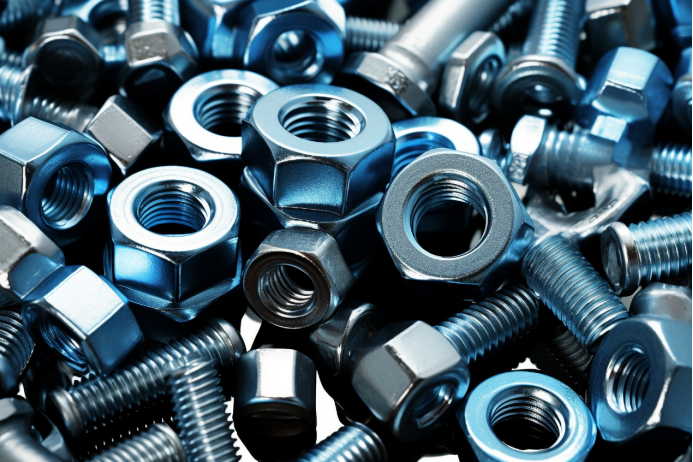

steel flanged rivet nut
Nov . 21, 2024 11:09 Back to list
steel flanged rivet nut
Understanding Steel Flanged Rivet Nuts A Comprehensive Overview
In the realm of fastening technology, steel flanged rivet nuts stand out as a versatile and essential component in various engineering and manufacturing applications. These specialized fasteners combine the functionality of a rivet with the robust properties of steel, making them ideal for providing strong, permanent threaded connections in materials where conventional threading may be impractical.
What are Steel Flanged Rivet Nuts?
Steel flanged rivet nuts, often referred to as rivet studs or threaded inserts, are cylindrical fasteners designed to create a strong anchor point in materials that may be too thin or brittle for traditional nuts and bolts. The flanged design offers a larger bearing surface, distributing the load over a wider area, which reduces stress on the base material. This is especially beneficial in applications where the material could otherwise deform or tear under load.
Construction and Materials
The construction of steel flanged rivet nuts usually incorporates high-quality steel, which enhances their durability and strength. These fasteners can be coated or plated for corrosion resistance, making them suitable for use in exposed environments. The flange is typically formed at one end of the nut, allowing it to sit flush against the surface of the parent material, providing additional structural support.
Applications of Steel Flanged Rivet Nuts
Steel flanged rivet nuts are prevalent in many industries, including automotive, aerospace, construction, and electronics. Their ability to provide a secure fastening solution in lightweight or hollow materials makes them particularly valuable in
1. Automotive Manufacturing In vehicles, where weight reduction is crucial, steel flanged rivet nuts are used to secure panels, components, and fixtures without compromising structural integrity. 2. Aerospace The aerospace industry demands high-strength materials and robust fastening solutions. These nuts are ideal for creating threaded connections in aircraft structures where lightweight and reliable assembly are critical.
3. Furniture and Decor Many modern furniture designs incorporate lightweight materials that require strong assembly methods. Steel flanged rivet nuts allow designers to maintain aesthetic appeal without sacrificing durability.
4. Electronics In electronic devices, where space is often limited, these nuts provide a reliable solution for fastening components in thin casings.
Advantages of Using Steel Flanged Rivet Nuts
steel flanged rivet nut

1. Easy Installation One of the primary advantages of steel flanged rivet nuts is their ease of installation. They can be installed with simple hand tools or pneumatic tools, saving time and labor costs.
2. Load Distribution The flange enables an even distribution of tensile and shear loads, minimizing the risk of damage to the material and ensuring long-lasting performance.
3. Versatility These fasteners are available in various sizes and thread configurations, making them suitable for numerous applications.
4. Reusability In some cases, steel flanged rivet nuts can be removed and reused, making them a cost-effective solution for applications requiring frequent assembly and disassembly.
Installation Process
The installation of steel flanged rivet nuts typically involves the following steps
1. Preparation of Materials The parent material must be drilled to the appropriate hole size as specified for the rivet nut.
2. Insertion The rivet nut is then placed into the hole. The flange should rest flush against the surface of the material.
3. Setting Using a tool designed specifically for this purpose (often a rivet nut gun), the nut is compressed, which deforms the bottom portion and locks it in place, creating a secure threaded receptacle.
4. Finishing After installation, the surface can be smoothed or finished as required by the specific application or design.
Conclusion
Steel flanged rivet nuts represent an innovative solution in fastening technology, offering a unique blend of strength, versatility, and ease of use. As industries continue to evolve and seek more efficient and reliable fastening solutions, the importance of these fasteners will undoubtedly grow. Their ability to support modern manufacturing techniques while ensuring high performance in diverse applications will secure their place as a fundamental component in engineering and assembly processes. Whether in automotive, aerospace, or consumer products, steel flanged rivet nuts are a testament to the advancements in fastening technologies that enhance design and functionality across multiple sectors.
Latest news
-
Premium Fasteners Manufacturer | AI-Driven Solutions
NewsAug.01,2025
-
Hot Dip Galvanized Bolts - Hebei Longze | High Strength, Corrosion Resistance
NewsAug.01,2025
-
High-Strength Hot Dip Galvanized Bolts - LongZe | Corrosion Resistance, Custom Sizes
NewsAug.01,2025
-
Best Self Tapping Screws for Drywall - Fast & Secure Installation
NewsJul.31,2025
-
High-Strength Hot Dip Galvanized Bolts-Hebei Longze|Corrosion Resistance&Customization
NewsJul.31,2025
-
Hot Dip Galvanized Bolts-Hebei Longze Metal Products|Corrosion Resistance&High Strength
NewsJul.31,2025

